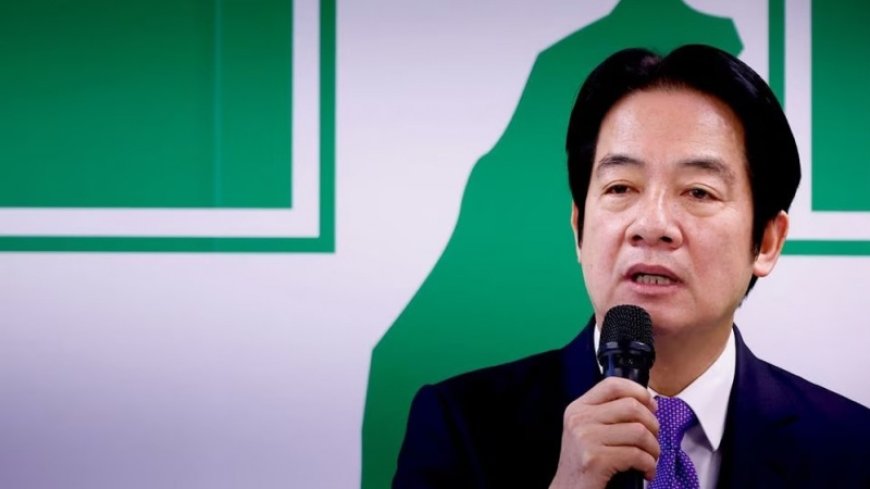China criticizes Taiwanese exponent's visit to the US
China criticizes Taiwanese exponent's visit to the US

China has reacted irritably at an upcoming visit to the United States by Taiwan's leading "separatist" presidential candidate, promising "strong measures" aimed at protecting its territorial integrity. Beijing protests with Washington over the plan Taiwanese leader, William Lai, who wants to travel to Paraguay via the United States next month. Beijing's foreign affairs spokesman said in a press conference that his country is firmly against any form of official interaction between the United States and the island, arguing that the visit violates the One China principle and damages its sovereignty. and security interests. “We oppose any visit by Taiwanese separatists to the United States under any name or pretext, and we firmly refuse to make Washington conspire and support Taiwanese separatists and its independence activities,” he said Mao.
Paraguayan President-elect Santiago Peña visited Taiwan last week and met with both Lai and its current president. Traditionally, senior Taiwanese officials transit through the United States on their travels to the few countries that still maintain formal diplomatic ties with Chinese-claimed territory. Currently, Paraguay is one of 13 countries that maintain formal diplomatic ties with the island. These moves exasperate Beijing. Indeed, in April, the Chinese government organized war exercises around the island after President Tsai met in Los Angeles with the Speaker of the US House of Representatives, Kevin McCarthy, returning from Central America. the announcement of this specific trip is of particular relevance, as it Lai aspires to succeed the ruling leader, Tsai Ing-wen, in the January 2024 elections and also leads the majority of opinion polls. Notably, the presidential hopeful angered China in 2018, when he was prime minister, by declaring before parliament that he was an "independence holder of a sovereign country." He advocated cutting trade ties with mainland China, which he calls "dependencies." .
For the Chinese spokesperson abroad "the Taiwan issue is the core of China's fundamental interests, the first red line not to be crossed in relations between China and the United States". Mao urged Washington to “respect the One China principle and the three Sino-US joint communiqués, to act in accordance with its commitment not to support Taiwan independence, to end all forms of official interaction with the island". their substantive exchanges and stop sending the wrong messages to separatists." In addition, he assured that "China will continue to monitor the situation closely and resolutely safeguard its sovereignty and territorial integrity." For China, Taiwan is a breakaway province that must be reunified with the mainland, by force if necessary. It has increased its military activities near it in recent years, including sending aircraft and warships across the middle line of the Taiwan Strait. Thus, in June, 28 Chinese fighters entered the Taiwan Air Defense Identification Zone (ADIZ), the largest incursion since the island began publicly reporting such operations last year.













































